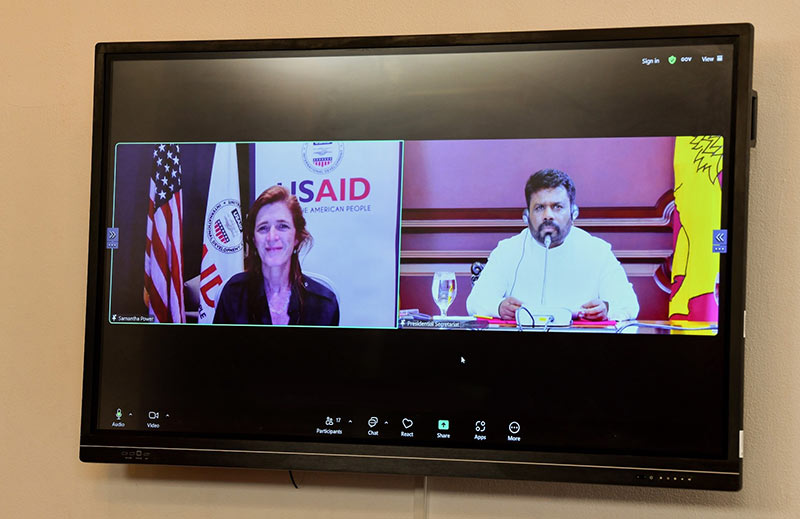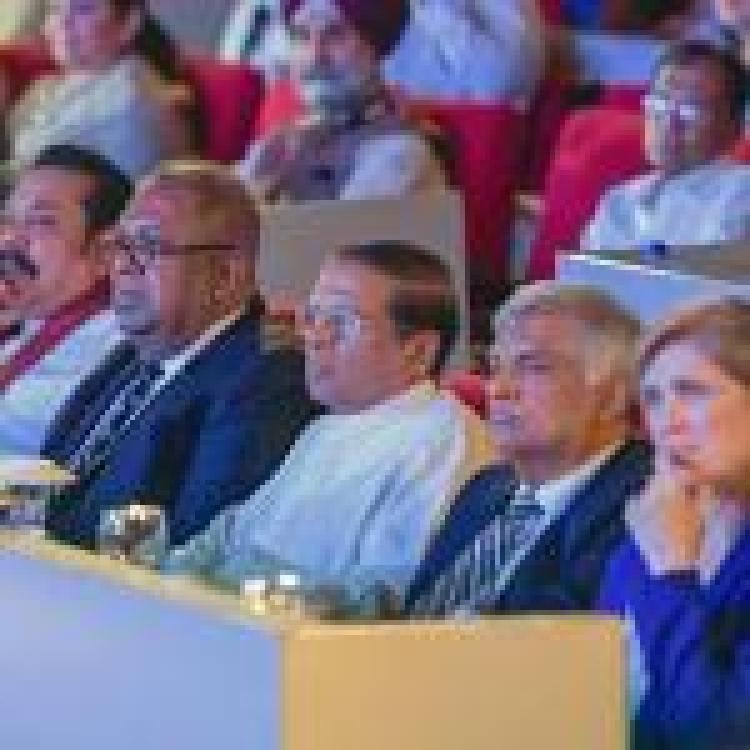
USAID Administrator Samantha Power and Sri Lanka's newly elected President, Anura Kumara Dissanayake, held a virtual discission on future cooperation between the US development agency and Sri Lanka this week.
The conversation marked their first formal engagement since Dissanayake’s election on September 21, 2024. According to the President’s Media Division (PMD), Power reiterated USAID’s commitment to supporting the government in line with Dissanayake’s anti-corruption agenda and promised continued assistance, especially in the wake of Sri Lanka's recent economic struggles.
Samantha Power was previously a fierce critic of the Sri Lankan government’s actions during the final stages of the armed conlfict in 2009, in which tens of thousands of Tamils were killed. As a senior foreign policy advisor to then-President Obama, Power initially insisted on accountability for war crimes and human rights abuses committed by the Sri Lankan state.
Power will be particularly familiar with Sri Lanka, having visited the island on at least three different occasions. Under the Obama administration, she served as a White House national security staffer from 2009 to 2013, before going on to become the US ambassador to the UN until 2017. During her tenure, however, she came under both praise and criticism, particularly for the way in which the administration handled Sri Lanka.
In 2014, she was explicit in her condemnation of the Sri Lankan government’s refusal to investigate war crimes, tweeting, “After 5 years in which the Sri Lanka government has undermined democracy & refused to investigate war crimes allegations, accountability [is] overdue.”
Her first visit to Sri Lanka in 2015, alongside David Pressman, then National Security Council Director for War Crimes and Atrocities, was marked by a strong call for justice. Power met with Tamil civil society members, visited Jaffna and Batticaloa, and voiced solidarity with Tamil victims and survivors of the civil war. She criticized the Rajapaksa administration’s divisive governance and its refusal to address wartime abuses, urging for investigations into alleged atrocities.
However, in recent years, Power’s tone has shifted and her once firm stance on accountability for wartime atrocities seems to have softened.
Read more in our feature: Samantha Power, Sri Lanka and another opportunity

